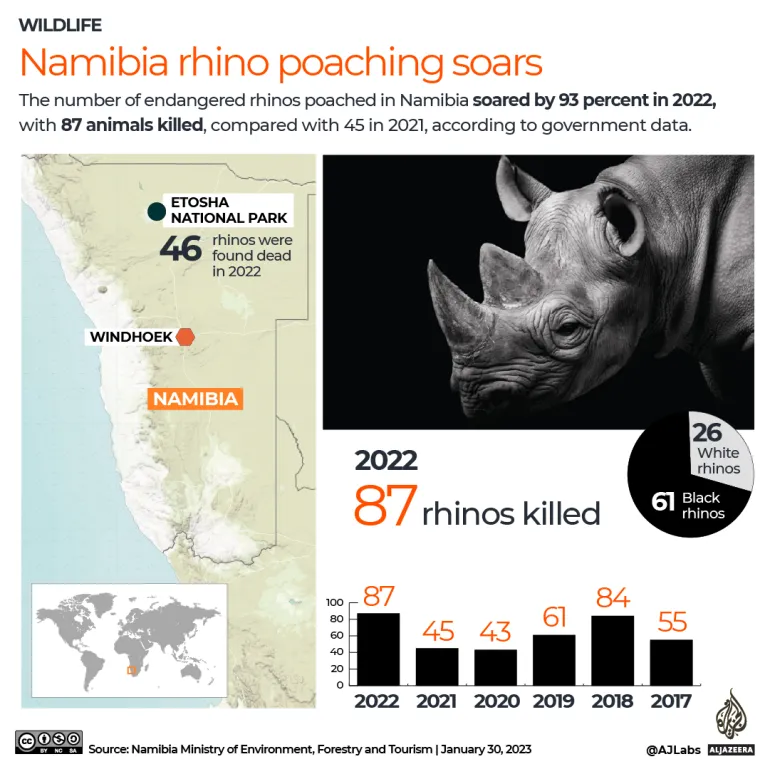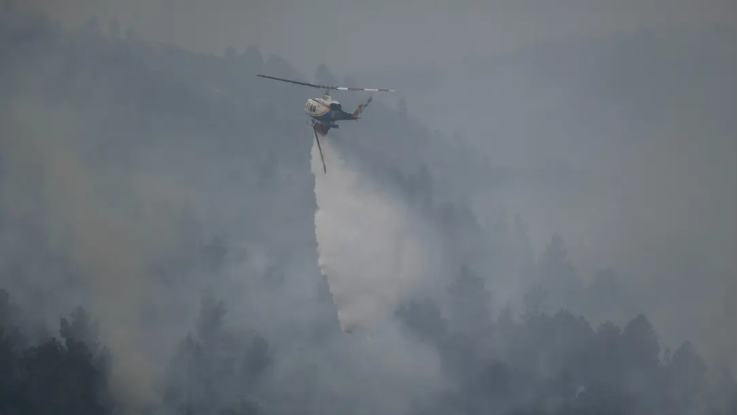Rhino Poaching Surges in Namibia
The number of endangered rhinos poached in Namibia reached an all-time high in 2022 with 87 animals being killed compared to 45 in 2021 — a 93% increase. Most were poached in Namibia's largest park.

Facts
- The number of endangered rhinos poached in Namibia reached an all-time high in 2022 with 87 animals being killed compared to 45 in 2021 — a 93% increase. Most were poached in Namibia's largest park.
- Over the decades, Africa's rhino population has been decimated to meet the demand for their horns in East Asia, which are prized as a supposed medicine and as jewelry despite being made of the same material as rhino hair and fingernails.
- In a statement released Monday, Ministry of Environment, Forestry, and Tourism spokesman Romeo Muyunda reported that poachers had killed 61 black rhinos and 26 white rhinos primarily in Namibia's largest park, Etosha. 46 rhinos were found dead in the park.
- Muyunda noted with serious concern that Etosha National Park is a poaching hotspot. The ministry and law enforcement officials have stepped up efforts against wildlife crime in the park to curtail poaching.
- Southern Africa has had a long history of poaching, especially in neighboring South Africa and Botswana. Anti-poaching programs include strict policing and removing the animal's horns to deter poachers.
- Poachers belong to international criminal syndicates that use sophisticated equipment to track and tranquilize the animals before hacking off the horn, leaving them to bleed to death. The black rhinoceros is the most endangered rhino species, with only about 5K left in the wild.
Sources: Al Jazeera, Reuters, US Today, Times Live, Sowetan Live, and BBC News.
Narratives
- Narrative A, as provided by African Wildlife Foundation. Poaching is a savage and brutal practice. Some believe that shooting poachers on sight will reduce the problem, but that approach fails to address the root of the issue — namely, that countries demanding rhino horns enable its purchase by driving up demand for the product. The horns sell for $60K per kilogram on the black market, which is more than gold or cocaine. If we want to save the rhinos, we need to come up with a new plan because this one isn't working.
- Narrative B, as provided by VOA News. Botswana reports a dramatic drop in rhinoceros poaching in 2022 after taking further steps to protect its shrinking rhino population. After losing 126 animals between 2018 and 2021, only six rhinos were killed in Botswana in 2022. This is due to a robust national anti-poaching structure that deploys the army to poach hotspots, dehorning the rhinos, and moving the animals away from vulnerable areas. However, another reason could be that the poaching syndicates literally have cleaned it out and taken their business to neighboring countries.






